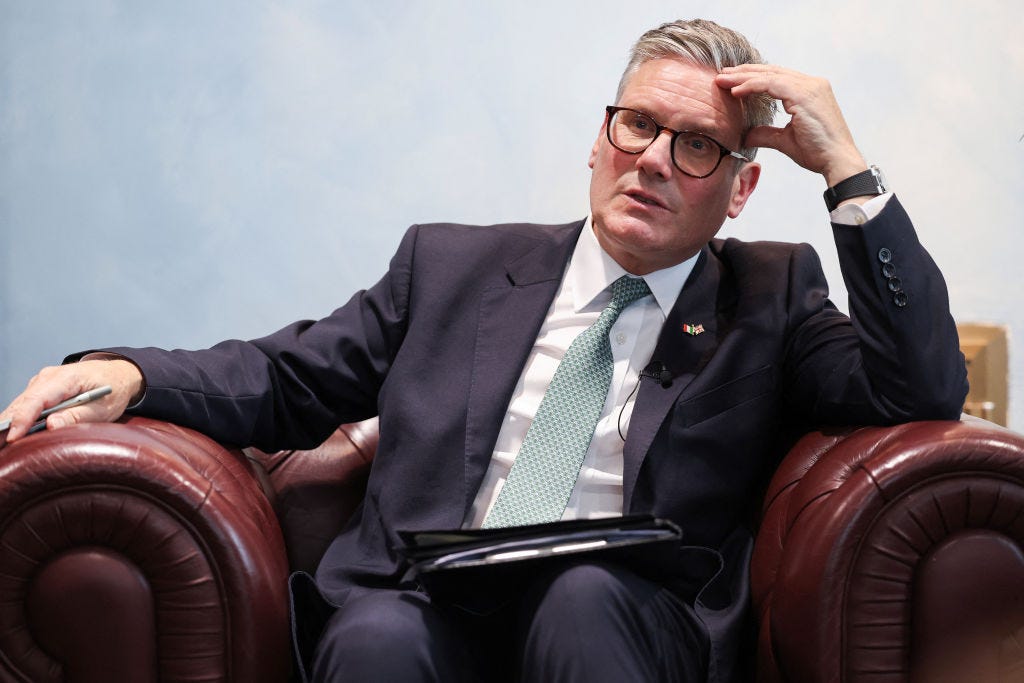Holding It Together
Why Labour is finding government so hard
Political narratives take hold in the media when the Lobby collectively acquire enough knowledge to decide they’re true, and there’s a trigger story to provide the hook.
It can take quite a while for the hook to appear, which is why, despite the Lobby being well aware of Boris Johnson’s distinctive ethical approach it needed the Owen Paterson scandal in late 2021 for that to become the dominant narrative, ending with Johnson’s defenestration in mid-2022.
Thus the significance of stories about “freebies” and Sue Gray’s salary is not their intrinsic importance but that they provide the hook for a narrative around Labour getting off to an unsteady start. With so much internecine briefing going on already – providing the material for all these stories – the media has permission to write about the dysfunctions of No. 10 and a lack of “grip”.
As is usually the case with dominant narratives this one contains a lot of truth. Labour are struggling for a number of reasons, most of which were predictable. They have inherited the pilot’s seat of a plane on fire and pointing downwards. Any incoming administration would be struggling with the controls.
It didn’t help that they came in unsure of where they want to land. As I wrote in a pre-election article for Prospect on whether Labour were ready:
“Even if money could be found, there are policy culs-de-sac all over the place, and neither the government nor the Labour party, to date, have offered a convincing sense of having an alternative model for public services in mind.”
Plus the absence of any spending plans for next year (a wildly irresponsible bit of politics from the Tories) was always going to slow things down while the Treasury ran a spending review. Anything that requires money is on hold until that is resolved, leaving Labour’s conference this week feeling policy-lite.
Of course, Labour made this harder for themselves by refusing to acknowledge fiscal reality during the campaign. Though Rachel Reeves is now strongly hinting that she will amend the fiscal rules to at least allow for more infrastructure spending.
On top of these predictable problems they are making life harder for themselves due to No. 10 being even more of a shambles than usual. This is where I thought they would be better placed given that Starmer and Gray, unusually for an incoming PM and Chief of Staff, have experience of the centre of the government. There were warning signs: some nasty briefings pre-election indicating unhelpful personal enmities. And of course Downing Street has been dysfunctional for a long time. Nonetheless, the level of friction has gone up rather than down.
There is time to sort all this out. Narratives always contains the seeds of their own reversal, and none has ever lasted for an entire Parliament. By April departments will know their three-year spending plans, and we will have a stream of more substantive policy announcements. None of this will matter if, in four years’ time, people feel better off and that public services are improving. (Equally if they don’t feel that then no amount of great speeches or “vision” will make any difference).
But Starmer does need to sort out Number 10 as a prerequisite for narrative redemption. As we’ve seen over the past decades a weak centre leads to a lot of bad decisions and frustrated public service managers. There’s a reason I started my book on state failure with the centre of government. So in the rest of this post I’ll focus on what needs to change – both in the short and longer term – to get the centre functioning.
Keep reading with a 7-day free trial
Subscribe to Comment is Freed to keep reading this post and get 7 days of free access to the full post archives.


